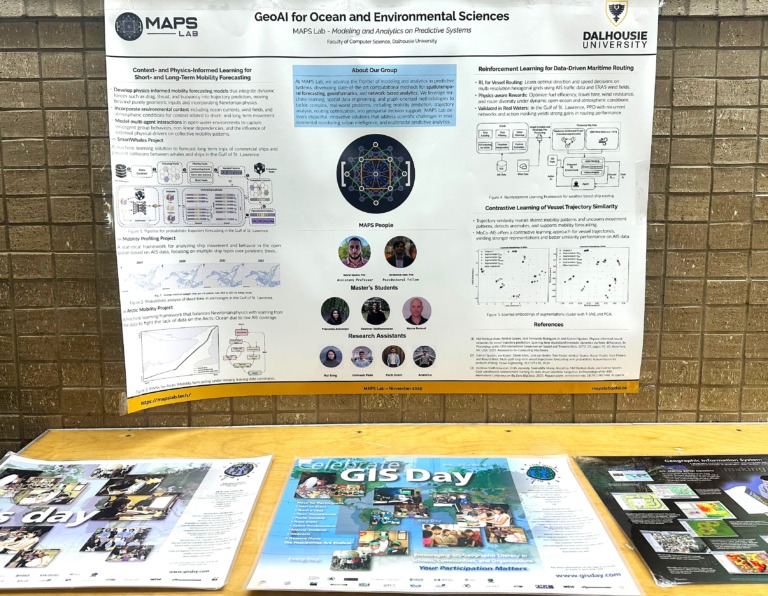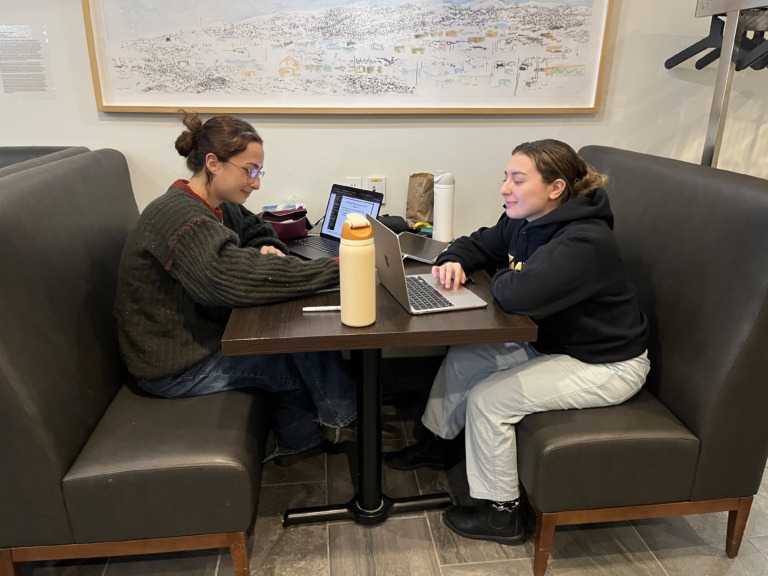
Michaëlle Jean at King’s
Former Governor General delivers first memorial lecture
Former Governor General delivers first memorial lecture
Students, faculty and citizens packed Alumni Hall and spilled into the nearby meal hall to catch the Right Honourable Michaëlle Jean deliver her speech for the first annual Alex Fountain Memorial Lecture on Oct. 24.
In her lecture at the University of King’s College, the former Governor General of Canada stressed how communication can foster solidarity and change within our community, our country and our world.
The Monday night lecture honoured Alex Fountain, a bright, musically talented and much loved King’s student who passed away in 2009. Alex’s family donated funds for an annual lecture in the spirit of Fountain and his involvement with the community and the arts.
Jean was selected by students and the Fountain family as the first speaker of the lecture series. Born in Haiti in 1957, Jean’s life began surrounded by political corruption.
“I learned it is possible to tell lies, and rob people of their rights and ability to lead a free life,” she said.
“I also discovered the value of resistance, the value of working with others to develop democracy and freedom for all.”
Jean talked about fleeing to Canada, where she grew up as a refugee in Montreal. As a child, Jean’s parents taught her to draw upon the words ‘fraternité,’ ‘justice,’ ‘liberté,’ ‘égalité,’ and ‘solidarité’ for strength.
After having the audience repeat these words in English, Jean said, “See how easy it is to communicate on the basis of our shared values? Language should not be a barrier.”
Jean’s value for communication motivated her to learn five different languages. “We can feel together, make strategies together, take action together.” And this communication is not limited to language, she says.
Jean is co-president of the Michaëlle Jean Foundation, which encourages youth to communicate through art as a means for social change.
“These youth are calling upon us, and exposing issues,” said Jean. And these issues, she said, are common among all of us.
“No matter where you’re from or where you’re going, our issues, aspirations are the same. We don’t take the time enough to consider just how much we have in common.”
Jean said art helps youth connect and abandon this “everyone for themselves” mentality, “rather than staying isolated from each other in silence.”
The foundation targets at-risk youth, including those in aboriginal and northern communities in Canada where poverty levels are high.
“In Canada, 3,000 aboriginal communities are without fresh water,” Jean said, “something that should not exist in a country like Canada.”
“It’s not an aboriginal problem. It’s a Canadian problem.”
She said using art to expose issues like poverty can inspire concrete solutions.
“Their art is not just about aesthetics,” said Jean. “It has the power to heal. It is psycho-social intervention at its finest.”
Jean’s passion for arts as communication for social change goes way back to her Creole heritage.
“I come from a country where art is a way of survival.” She said during slavery in Haiti, owners would never have two slaves of the same ethnic group on a plantation for fear of rebellion. “Communication was viewed as a threat,” she said. “If you could share words, you could share thoughts.”
So to communicate, slaves created a new language, Creole. Jean said Creole is an art composed of bits of different languages such as French, Arabic, Spanish and English.
“Where would we be if it wasn’t for this creative resilience?”
She said we can apply this resilience to foster change in today’s society.
“We must ensure that feelings of powerlessness no longer discourage anyone from being a change-maker. We must do what it takes to cultivate that sense of togetherness.”







